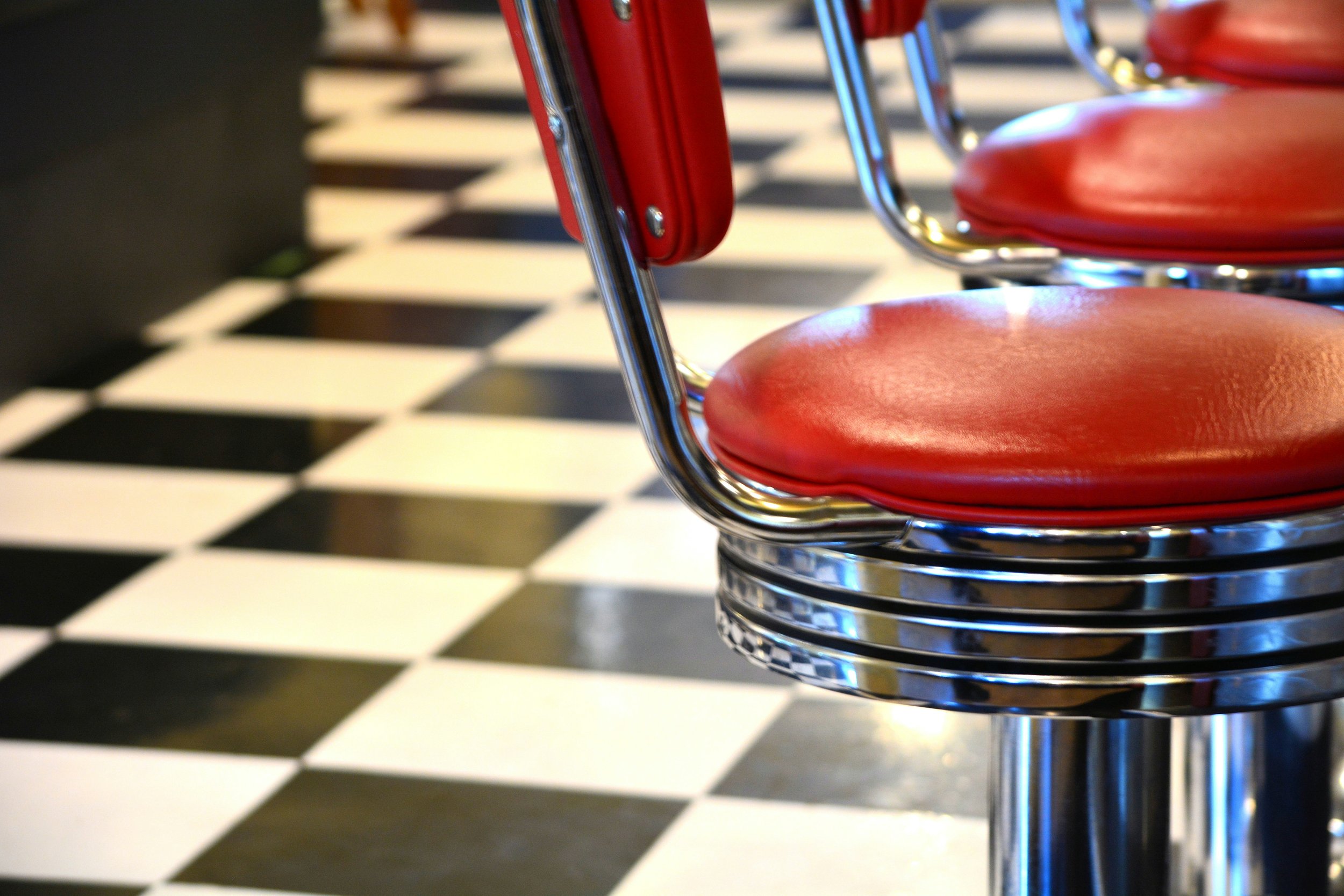To the Doctor Who Left

I prepared for our first meeting the same way I would for a job interview. I had researched my husband's illness and gotten recommended interventions on the internet. I dressed well for you. White sneakers, Lululemon leggings from my husband's cousin, a loose flowy top with a wide camp collar that was casual, but not too casual. I ate a salami sandwich to pre-empt my stomach’s embarrassing lunch-time gurgles, and made sure to floss and brush afterwards.
You were handsome with a square jaw and a Disney-prince dimple on your chin. Slightly younger than my father. Your hair was a thick, combed silver. My husband and I were seated on the metal chairs by the window of your office, whispering about the New York Times crossword, when you walked in and smiled. This was good. My husband needed a friendly face and more distraction than the crossword was able to give.
I read somewhere that doctors always position themselves near the door of their office, in case their patients get violent. But it was me who was afraid of you. I sat up straight, eyes wide. My husband returned his phone to his pocket. We’d left the baby at home, but when I saw you, I wished I had brought her—something to offer you; something you could approve of. I wanted to ask good questions, like: “What was the shape and margins of the mass?” “Can we request HCG and AFP tumor marker tests?” And most especially: “What is the prognosis?” If I impressed you, perhaps you would take good care of us, and my husband would not die.
“If I impressed you, perhaps you would take good care of us, and my husband would not die.”
My husband was 34 and I was a year older. I’d dreamt about him before I met him: I’d seen a curly-haired man in cargo shorts playing his guitar on the grass, in a garden I couldn’t quite reach. On our first date, I sensed the power behind all of his 6-foot frame focusing on me, waiting until I was ready to speak.
We had a baby, moved to the US, and got married. I had just crawled my way out of postpartum depression, and then, after his first checkup in eight years, my husband told me his primary care doctor had found a "palpable mass."
I remember where I stood when my husband said this, the same way I remember where I was when we elected our first Black president, and where I sat watching TV on September 11th. We were at his parent’s house, on the busiest commuter street of their suburban neighborhood. The thrushes were not yet back from their winter travels. He was in the hallway, just outside the bathroom, and I was by the stairs. How normal the light seemed that flowed from behind him. How distracted he was with the baby. I paused, laundry basket on one hip. He didn't meet my eye.
And now, two weeks later, we were in front of you. Your office was painted beige and blue. The air was unnaturally still, and a touch too warm. I caught the glint of a heavy-looking watch when you moved. You sat down as if you had all the time in the world, and asked my husband how he felt. I tried to stop my leg from shaking.
What did I look like to you? There were new lines under my eyes. My hair was dry and knotted. There was no airflow in your room. I was worried you could smell the sweat that prickled under my armpits.
I wanted to tell you that I couldn't lose my husband. I wanted to describe the time we kayaked through a storm on Lake Malawi, or how we strolled along the shore of a moonlit Zanzibar, passing a joint back and forth. Or how he once placed a hand on my chest as I lay on a hospital bed, waiting for our newborn to breathe. Instead, I asked whether the testosterone results were in.
You told him to pull down his pants so you could feel the mass yourself. Your tone was too gentle, as if he were a fragile thing and you were going to hurt him. I glanced at my husband's testicles and felt that now-familiar pang of guilt for not having seen it before. The first time I truly saw it was during the ultrasound. The cancer was lit up with red and blue vascularity, pulsating like a young city.
You said he needed surgery immediately. I was scared of the bills and the mistakes that might be nobody’s fault. You crossed your arms and leaned back in your chair. The shirt beneath your white lab coat looked crisp. I studied the room for objects that would help me better understand you. But it was bare, the light harsh and white. I wanted you to take my hand in both of yours as a father would a daughter, and tell me everything was going to be alright. What would it cost you to say that?
Me, an African woman, living in her in-laws' home, facing the prospect of life in a foreign country alone. You, a white male doctor, head of urology, unseasonably tanned. I thought about your life, what it must be like. You had a wife who wore unwrinkled white linen and hosted book clubs in her rose garden. You had three children, each one athletic and recently graduated from an Ivy League university. You were a member of a country club. Had you learned to separate your patients from your life outside your office? What parts of me would you carry home with you?
"God knows what God is doing," my mother said, when she found out.
You were my god. In your hands, if you chose it, my husband would be well.
You told us we would beat this thing. But I don't know what that means when cancer is our own cells, undead and fiendishly hungry. How do you beat yourself?
I scanned your face for the truth, anything beneath the veneer of friendly professionalism.
Were you afraid?
When you looked at us, did you see death?
"We have a child," I told you this because I wanted to penetrate your comfort if only for a moment. I wanted you to feel the same destabilization that I did.
This is how I want my husband to die: When he is twenty years older than you, and our world is a field of memories. We are holding hands in a nursing home. Our daughter and her family have just visited. We sit outside at dusk, before coming to bed. We watch one of our favorite television shows, and fall asleep holding hands. That's all.
You could make that happen for us, if only I could make you care enough to do your very best during the surgery. You could schedule it for the morning, and make sure your favorite nurse was available. You could sleep early the night before, knowing that when you wake up, you will take my husband’s life in your hands.
“This is what I’ve always known: Good things happen for polite, quiet women who are helpful without being obstructive.”
This is what I've always known: Good things happen for polite, quiet women who are helpful without being obstructive. I have been all those things. I have supplied you with facts about his medical history. I have listened attentively. I have dressed well. You have acknowledged this by answering all my questions in the same even, friendly tone you used with my husband.
My husband pulled up his pants. You removed your gloves, unhurriedly. I allowed my shoulders to relax. We would be all right, because you were here, and you glowed with luck and privilege.
You leaned forward, looked at me first, then him. You were about to tell us something important. My body unconsciously copied yours, as my elbows rested on my knees.
That's when you said you were leaving. You would be on vacation for a month, and it was best not to wait that long for the surgery, so someone else would have to do it. If you stayed, you could take care of my husband, and I could untense the muscles in my neck, knowing he was safe. But I didn't know how to ask without breaking all the rules about how a patient should behave: professional. Accepting. Meek. I wanted you to be in that room the same way I had wanted my father to be at my wedding. But you too, would not show up. I saw something like pity in the way your brow furrowed when you looked at me.
I thought of you on a beach in Hawaii, or some other island I have never seen before. I pictured you sipping a cocktail, reading a book, your grandchildren playing in the sand beside you. Your wife would lean over and urge you to apply more sunscreen. You would put down your book and oblige with a tired, satisfied smile.
Your replacement was a doctor our age. He did not have your experience, or your warmth. This doctor barely looked at me. I caught him rolling his eyes at one of my questions. I never saw you again.
You won't know about our subsequent visits to the oncologist, or all the CT scans and X-rays. You can't know that when they wheeled my husband into the theater, I stumbled into a toilet and made strangled, sobbing sounds while pressing my fist to my mouth.
Now that the surgery is over and my husband is well, I find myself thinking of you differently. On quiet mornings when I watch him drink his coffee before the baby is awake, I wonder about the weight you must carry. How many wives have sat where I sat? How many faces blur together in your memory, by necessity?
Perhaps the rest of our journey was never meant to be yours to shoulder. Perhaps it is a mercy of your profession to forget, so you can steady your hands for the next surgery, the next family perched on metal chairs, praying for you to save them.
About the Author
Noella Moshi is a Tanzanian writer whose work draws from international experience across Nigeria, South Africa, Papua New Guinea, Kenya, and the United States. She has received full scholarships to the ILS Literary Seminar in Lamu, Kenya, and the 2025 Juniper Summer Writing Institute at University of Massachusetts, Amherst, and is a 2025 Global Majority and Underrepresented Writing Scholar at the University of Oxford Centre for Life Writing.
Her short fiction has appeared in Jahazi Press, Paivapo Press, Neon Lit, Black Letter Media, and Iskanchi Press Mag, with forthcoming work in Brittle Paper. Her debut manuscript, WALKING IN HONEY, was longlisted for the James Currey Prize for African Literature. Her writing explores themes of displacement, belonging, and identity across cultures and continents.
Read Noella’s “Behind the Essay” interview in our newsletter.
Edited by Carey Baraka.
Header photo by Hush Naidoo Jade.










